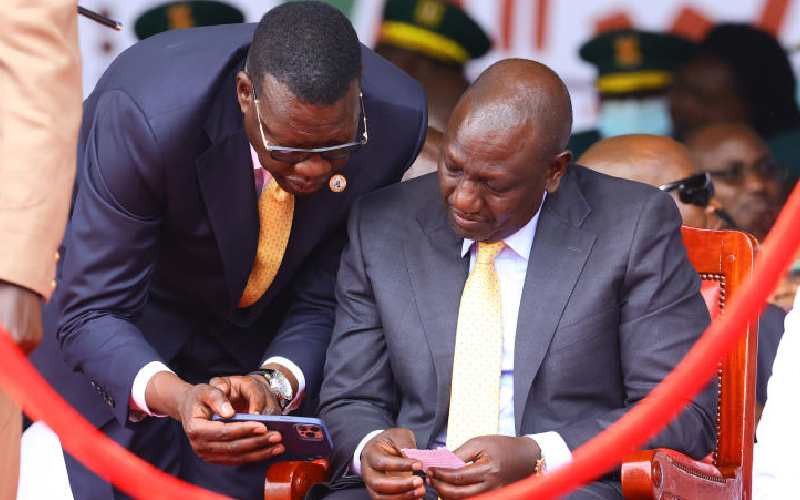
Davis Chirchir with President William Ruto during the inauguration ceremony at the MISC, Kasarani on September 13, 2022. [Kelly Ayodi, Standard]
Davis Chirchir left the energy ministry in controversial circumstances in 2015 after serving as Cabinet Secretary for only two years but is now likely to return there.
Before President William Ruto nominated him as a CS for Energy, he was one of the most conspicuous politicians at State House functions.
 The Standard Group Plc is a multi-media organization with investments in media
platforms spanning newspaper print
operations, television, radio broadcasting, digital and online services. The
Standard Group is recognized as a
leading multi-media house in Kenya with a key influence in matters of national
and international interest.
The Standard Group Plc is a multi-media organization with investments in media
platforms spanning newspaper print
operations, television, radio broadcasting, digital and online services. The
Standard Group is recognized as a
leading multi-media house in Kenya with a key influence in matters of national
and international interest.


